We use cookies to make your experience better. To comply with the new e-Privacy directive, we need to ask for your consent to set the cookies. Learn more.
 IMMUNOGEN - SELECTION & DESIGN
IMMUNOGEN - SELECTION & DESIGN
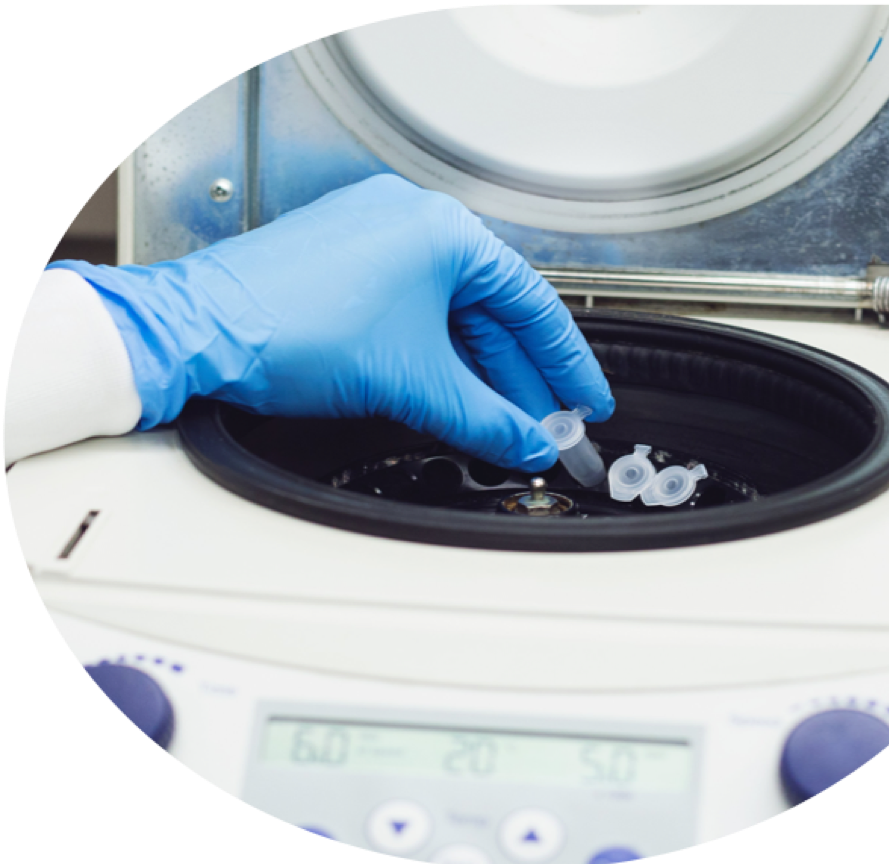
 PROTEIN
PROTEIN
Proteins are widely used to develop polyclonal antibodies due to their high number of distinct epitopes, leading to a very high immunogenicity. These immunogens are also a good choice to develop antibodies which are expected to work in a wide range of applications.
However, the presence of conserved patterns within some protein families might be a concern in terms of cross-reactivity, and the presence of tags within recombinant proteins may lead to the production of anti-tag antibodies. Moreover, some proteins may be difficult to purify or require specific purification processes, thus increasing production costs.
You can choose a protein of several nature such as:

Protein
In solution
Lyophilized
Within polyacrylamide gel

Microorganism
Inactivated virus
Inactivated bacteria
Inactivated yeast
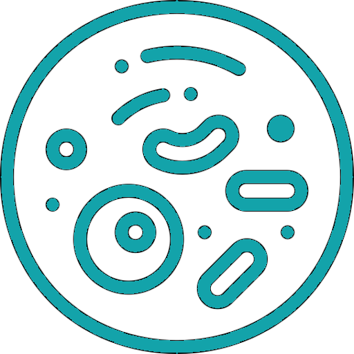
Other
Cell or tissue extracts
Other (please contact us)
 PEPTIDE
PEPTIDE
Using synthetic peptides as immunogens is the simplest way to produce antibodies against difficult-to-purify proteins or against putative protein sequences derived from DNA sequence information. As the epitope is well defined, this method is also useful to target a specific isoform of a given protein, or a specific region such as its active site or an extracellular domain. We recommend injecting 2 or 3 distinct peptides to increase the stimulation of the immune system and to target several epitopes of the protein.
Nevertheless, peptides are small molecules which are not easily recognized by the immune system, and thus require conjugation to carrier proteins. Depending on the nature of the peptide, the conjugation can be performed with one of the following carrier protein:
- Keyhole Limpet Hemocyanin (KLH)
- Ovalbumin (OVA)
- Bovine Serum Albumin (BSA)
 POST TRANSLATIONAL MODIFICATIONS
POST TRANSLATIONAL MODIFICATIONS
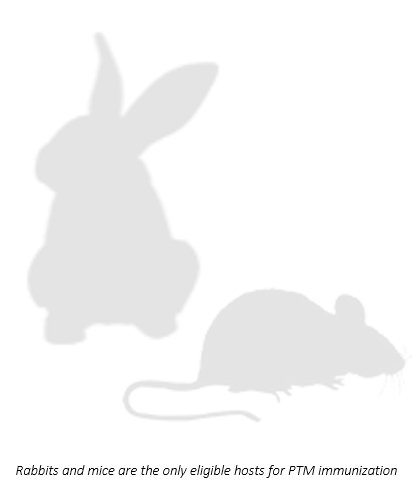
Post-translational modifications or PTM are chemical modifications that play a key role in functional proteomics. PTM can be the covalent addition of functional groups on specific amino acids, proteolytic cleavage of regulatory subunits or degradation of entire proteins. Our scientists are specialised in both the post-translational modification and the peptide synthesis fields. Using this knowledge, we can provide a high quality service in order to develop specific antibodies against post-translational modifications using peptides modified in vitro.
To achieve this, we take into account:
- The immunogenicity of the amino acids sequences on both sides of the modification
- The presence of conserved patterns relative to the host species
The sequence we select is first submitted to your validation before starting the immunisation protocol.

 HAPTENS
HAPTENS
Haptens are small molecules that can trigger an immune reaction only when there are conjugated with a carrier protein. These haptens can be carbohydrates, chemicals, toxins, natural or modified nucleotides.
Depending on the nature of the hapten, the conjugation can be performed with one of the following carrier protein
- Keyhole Limpet Hemocyanin (KLH)
- Ovalbumin (OVA)
- Bovine Serum Albumin (BSA)
